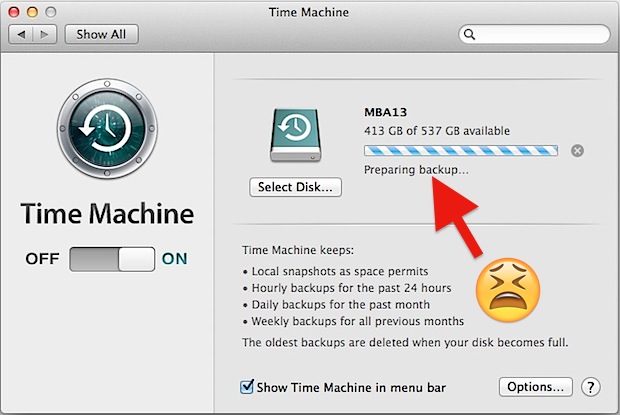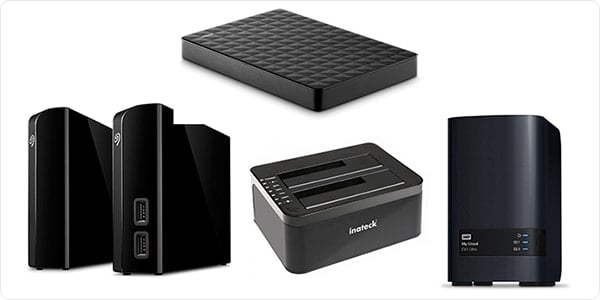

- HOW TO ACCESS MAC BACKUP EXTERNAL HARD DRIVE HOW TO
- HOW TO ACCESS MAC BACKUP EXTERNAL HARD DRIVE FOR MAC
- HOW TO ACCESS MAC BACKUP EXTERNAL HARD DRIVE FULL
- HOW TO ACCESS MAC BACKUP EXTERNAL HARD DRIVE WINDOWS 10
- HOW TO ACCESS MAC BACKUP EXTERNAL HARD DRIVE SOFTWARE
The Mac operating system will automatically sync the files to Apple’s servers. If you don’t see this is the side pane, open System Preferences > iCloud to check you’re signed in and that this service is enabled. To take advantage of iCloud, simply open your Windows drive in Finder then copy and paste any files you want to work with to the location ‘iCloud Drive’. Online services such as iCloud Drive offer a generous free allowance (5GB) and allow you to immediately sync, edit and share files even if they were originally created for Windows and saved to an NTFS disk. If you only want to work or collaborate on a few files, why not ditch the drives altogether and place your files in the Cloud?
HOW TO ACCESS MAC BACKUP EXTERNAL HARD DRIVE WINDOWS 10
When using BootCamp remember that any files you save to the Windows 10 section of the hard disk itself can’t be accessed when you reboot into macOS and vice versa. If you enjoy using the iWorks app however (Pages, Keynotes & Numbers), you can work with the online versions of these tools on a PC by accessing iCloud via your browser.
HOW TO ACCESS MAC BACKUP EXTERNAL HARD DRIVE FOR MAC
You’ll also naturally will have to work with files using Microsoft apps instead of those designed for Mac like iMovie.
HOW TO ACCESS MAC BACKUP EXTERNAL HARD DRIVE HOW TO
See our guide on setting up BootCamp for more details on how to get started.Īlthough BootCamp is easy to set up and use, you must purchase a Windows 10 license to keep using the OS after 90 days. To get started, all you need is an internet connection, a valid Windows 10 DVD and a USB stick of at least 8GB. This includes working with NTFS-formatted drives. Once set up, Windows 10 will function on your Mac in just the same way as it would on a regular PC. This allows you to boot both operating systems on your Mac.
:max_bytes(150000):strip_icc()/how-to-backup-your-iphone-to-an-external-hard-drive-47995731-dcdf553fdbb9433189ebf02f351269c4.jpg)
During the setup process, users shrink the size of their existing macOS installation to make room for Windows. The most recent version of macOS ( Mojave) supports Windows 10. You should now be able to edit existing files and copy new ones here.īootcamp is macOS’ own built-in utility for installing Microsoft Windows on your Mac. Open Finder, then click Go’> Go to Folder, then type ‘/Volumes/NAME’ where ‘NAME’ is the name of your NTFS drive.Ĭlick ‘Go’ to access your Windows disk. Next, connect your Windows drive to the Mac. Press Ctrl+O to save the list, and then press Ctrl+X to exit NANO. USB1 (if you’re unsure what this is, simply open Disk Utility): LABEL=NAME none ntfs rw,auto,nobrowse Use the arrow keys on your keyboard to scroll to the very end and add the following line, replacing ‘NAME’ with the actual name of your NTFS drive e.g. This will open the list of drives recognised by macOS. Connect your NTFS drive, then enter the command: sudo nano /etc/fstab To get started, click the Spotlight icon at the top right of your screen and enter ‘Terminal’. As this feature is still in the testing phase however, your files could become corrupted at anytime, so proceed with caution.

HOW TO ACCESS MAC BACKUP EXTERNAL HARD DRIVE SOFTWARE
The main benefit of using Terminal in this way is that it’s quick to do and no third-party software is required.
HOW TO ACCESS MAC BACKUP EXTERNAL HARD DRIVE FULL
This is an experimental feature and could lead to data loss, so make sure to do a full backup of both your Mac and any data on the drive before continuing. If reformatting your NTFS drive for Mac is not an option, you can enable write support for specific Windows disks using macOS Terminal. From now on you’ll be able to move files to your drive and edit them in place from a Mac or PC. Read the warning carefully before proceeding, as this process will delete any existing data on the drive.

Enter a new name for the drive in the field above if you wish.Ĭlick ‘Erase’ to continue. Insert your NTFS drive or USB stick and click to highlight the disk name in the white box on the left-hand side of the window. To get started, click the Spotlight icon at the top right of your screen and enter ‘Disk’ to launch Disk Utility. More information on FAT32 versus NTFS is available from Microsoft Support. This may pose a problem if you’re using the drive to store high-quality videos. This is simple to do and means the data on your drive/USB stick can be read and written on both Macs and PCs.īe aware that the FAT32 format isn’t as efficient as NTFS: it only supports files sizes of up to 4GB. If you have an NTFS drive you can use macOS’ Disk Utility to reformat it to FAT32.



 0 kommentar(er)
0 kommentar(er)
